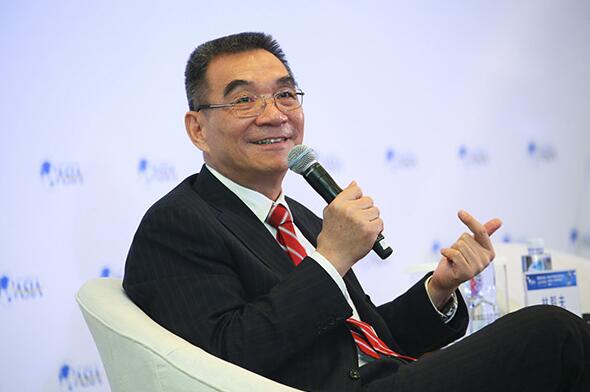2017 GDP expected to match 2016 pace
 0 Comment(s)
0 Comment(s) Print
Print E-mail China Daily, January 7, 2017
E-mail China Daily, January 7, 2017
 |
|
Justin Yifu Lin, a professor at Peking University.[Photo/China Daily] |
China's economy appears poised to deliver growth that should equal the 2016 pace, but potential trade friction with the US could pose a challenge for policymakers, analysts said at a discussion on the mainland's 2017 prospects.
The Forecast for China's Economy for 2017 was hosted by the National Committee on US-China Relations and Peking University's China Center for Economic Research on Thursday at the New York Stock Exchange. Economists, market participants and experts on Sino-US engagement from both countries attended.
Last year there was pessimism on China's economic outlook, but the country produced a steady performance with gross domestic product growth likely to come in at around 6.5 to 6.7 percent, said Stephen Orlins, president of the national committee who moderated the forum.
China Everbright Securities Co Ltd chief economist Xu Gao said that it was tempting to assume the same scenario will unfold again in 2017.
He added that policymakers would keep GDP growth stable and at about 6.5 percent in 2017.
A strong performance for China's A share stock market was predicted by Huang Haizhou, managing director for China International Capital Corp, who said he expected growth of about 6.7 percent in 2017.
However, noting that the incoming Trump administration would take over the White House in about two weeks, Nicholas Lardy of the Washington-based Peterson Institute for International Economics said potential trade disputes or even a trade war could pose a challenge to China's economy.
"Even if he (Trump) does only a small part of what he has promised, China may retaliate," Lardy said.
"We will get clues very early and if it happens, you can downgrade China's growth maybe by a half or full (percentage) point."
Peking University professor and a former World Bank chief economist Justin Yifu Lin told the discussion Trump would drop much of his campaign rhetoric that targeted China as taking advantage of the US in trade.
"We know that trade is a win-win for both sides," said Lin.
"I think there is (enough) common ground to come to a mutual understanding. Once they take office they will see that trade is good for the US and good for China."
In 2009 during the financial crisis, Lin suggested that countries implement an infrastructure building plan to jump-start growth. He said he believed that infrastructure investment remained a viable way to create growth and jobs.






Go to Forum >>0 Comment(s)